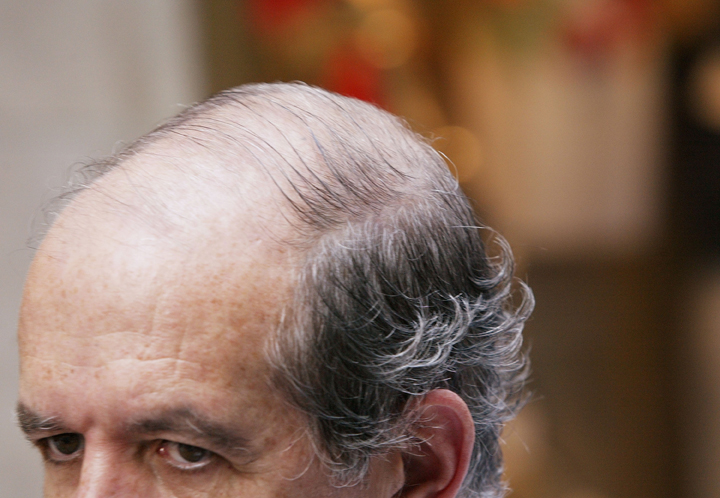Worried about your hairline? You may be able to predict your chance of severe hair loss, according to new research.

Scottish scientists out of the University of Edinburgh say that they’ve narrowed down more than 200 genetic regions tied to male baldness. Before these findings, scientists only pinned down a handful of genes tied to balding.
“We identified hundreds of new genetic signals. It was interesting to find that many of the genetics signals for male pattern baldness came from the X chromosome, which men inherit from their mothers,” Saskia Hagenaars, a PhD student from the university, said in a statement.
READ MORE: A cure for baldness? Scientists use stem cells to grow hair follicles
“We are still a long way from making an accurate prediction for an individual’s hair loss pattern. However, these results take us one step closer. The findings pave the way for an improved understanding of the genetic causes of hair loss,” Dr. Riccardo Marioni, the study’s lead investigator, said.
The Scottish team looked at the genetics and health data of more than 52,000 men living in the U.K. That’s how they found the 287 genetic regions linked to baldness. With that information in tow, they created a formula to try to predict the chances of going bald.
READ MORE: How a father’s diet, lifestyle affect his baby’s healthy development
They concede they’re still working on accuracy for the testing. It’s still “some way off” but the results can help to identify which men that are at a greater risk of losing their hair.
The reasons why people lose their hair vary from genetics to aging and stress, according to the Canadian Dermatology Association.
- Ontario doctors offer solutions to help address shortage of family physicians
- Capital gains changes are ‘really fair,’ Freeland says, as doctors cry foul
- ‘Dangerous message’: Experts slam anti-sunscreen claims circulating online
- As fake Botox cases prompt alert in U.S., Canada says no new issues reported
Hair loss also occurs after major surgery or childbirth, for example.
READ MORE: These are the genes that may explain why you have a unibrow, bald spot or grey hair
In male pattern baldness, hormones and genetics are usually the culprits. It starts with a receding hairline and hair loss at the top of the head. About 50 per cent of men are affected by it at some time in their lives and about 80 per cent of men by age 70, the organization says on its website.
READ MORE: How bacon and sausages are changing your sperm quality
Marioni and Hagenaars’ full findings were published in the journal PLoS Genetics.
carmen.chai@globalnews.ca
Follow @Carmen_Chai




Comments